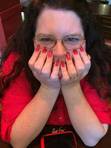Making the Move From Reader to Aspiring Author, part one
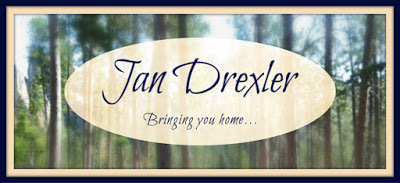
All of us here on Seekerville have at least one thing in common – we love Story. Whether we’re readers or writers (or both!) we have discovered that there is an enchanting world to be found between the covers of a book.
Authors are often asked questions from readers who would like to become authors themselves. No matter which questions they ask, what they really want to know is:
How do I get from being a reader to being a writer?
How do I prepare for a writing career?
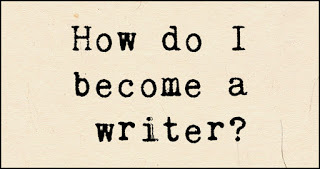
I remember being the one asking these questions. I started asking when I was very young (I attempted to write a script for an episode of the television show, Bonanza, when I was nine years old…yes, that’s how long ago it was!) and I still had questions as I finished school, married, raised my family, and started on the downhill side of middle age.
Today, I’m going to try to answer your questions by giving you the first three of six steps to get from point A (reader) to point B (writer.) The first three steps are in today's post, the last three will be in next month's post (Lord willing.) These steps are meant to be a jumping off point. A place to start digging deeper. A place to start writing your own curriculum to teach yourself how to become an author.
It won’t be easy – to quote Ruthy, “writing is hard” – but it will be doable…IF you are willing to approach this task with a willing heart and a teachable spirit.
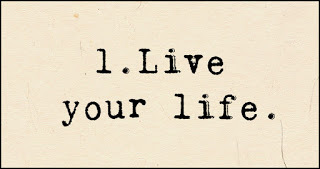
Step 1: Live your life.
When I was just a young thing graduating from college with my shiny new degree in English With A Creative Writing Emphasis, the last thing I felt ready to do was write a book. I had spent four years learning things that were supposed to make me a writer (most of which I’ve long since forgotten,) but I was woefully ill-equipped. Why? Because I had spent four years learning how to be a "writer"…not how to develop characters, construct a plot, or even plan a scene...in other words, to write a story.
As I prepared for graduation, I knew, deep down, that I knew nothing. I had no experiences, no knowledge, no wisdom.
What could I have done differently? I would have studied a different major, first of all.
History would have been a good major. Or philosophy. Or psychology.
Anything that would have taught me about people.
But even studying about people would not have given me the depth of knowledge I’ve gained by just living my life and trying to understand it.
You don’t have to live as long as I have to cultivate your “people knowledge.” You can use your own experiences, your family’s experiences, and your friends’ experiences, examining them with a writer’s eye. Understanding those experiences, how they have been affected by the past and how they will affect the future. And seeing them through God’s eyes…with a Christian world-view.
So, for your first assignment , LIVE! And as you live, observe, ponder, and ask “what if I had done it this way…”
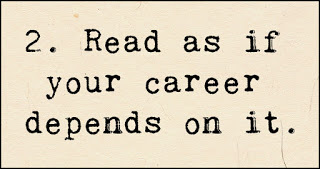
Step 2: Read as if your career depends on it.
I’ve talked about reading for writers in another post. You can find Part One HERE and Part Two HERE, and I recommend that you take a few minutes to read them to refresh your memory. We’ll wait.
I can’t add much to the posts I wrote earlier, except that the top priority of every aspiring (and published) author should be to read.
So, your second assignment is to read - but not just any book. Choose one that you finished with a sigh, thinking, "oh, I wish I could write a book like that." Then re-read the book, applying the techniques that I outlined in "Reading as a Writer" part two.
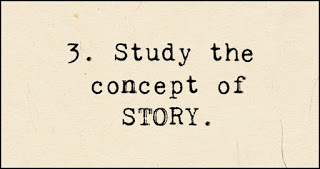
Step 3: Study the concept of STORY.
I can’t emphasize this enough.
Story is the thread that makes our stories resonate with readers. I believe we all have an affinity for Story built into our DNA that goes all the way back to the Garden of Eden.
How do you learn Story?
1. Read. I can’t say that often enough. From "The Story of Peter Rabbit" to "War and Peace," each book we read tells a story – A Hero. A Heroine. A Noble Quest. A Dragon. A Sword. A Victory. Knowing how those elements fit together is the beginning of understanding Story.
2. Study. There are some wonderful resources for writers that explain how to tap into that elusive thing we call story. Here are a few, but there are many others!
“The One Year Adventure Novel” curriculum by Dan Schwabauer. My boys and I used this curriculum when they were in high school, and I learned more about writing with this curriculum than I did in four years of college. Even though this is curriculum written for homeschoolers, it’s useful for anyone who is in the beginning stages of building a writing career. You can learn more by visiting the website HERE.
Another resource I recommend is “The Moral Premise” by Stan Williams. Dr. Williams has been a guest on Seekerville more than once, and you can read about his book HERE. Or you can read an introduction to The Moral Premisein this post from the Seekerville archives.
The third resource, and one that will take you deep into thissubject, is "The Writer's Journey" by Chris Vogler. He delves into the maze of Story and breaks it down intotwelve steps. You can find his book HERE, or the companion video course with Chris Vogler and Michael Hauge, "The Hero's Two Journeys" HERE.
Your third assignment is to watch this fun introduction to The Writer's Journey story structure in a short video. Watch here!
Whew! Are you ready to get started on your course of self-education? Tune in next month when I’ll share the next three steps!
Meanwhile, share your aspirations with us! Are you at the bottom of that steep learning curve, feeling like EVERYONE knows more than you do? (You aren't alone!) Or are you somewhere in the middle, looking for more ways to make your writing shine?
One commenter will win your choice of a copy of my newest release, "The Roll of the Drums," book two in the Amish of Weaver's Creek series. (US only for paper copy, Kindle for international or if you prefer the digital version.)
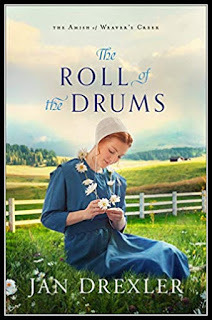
Published on March 15, 2020 21:00
No comments have been added yet.

